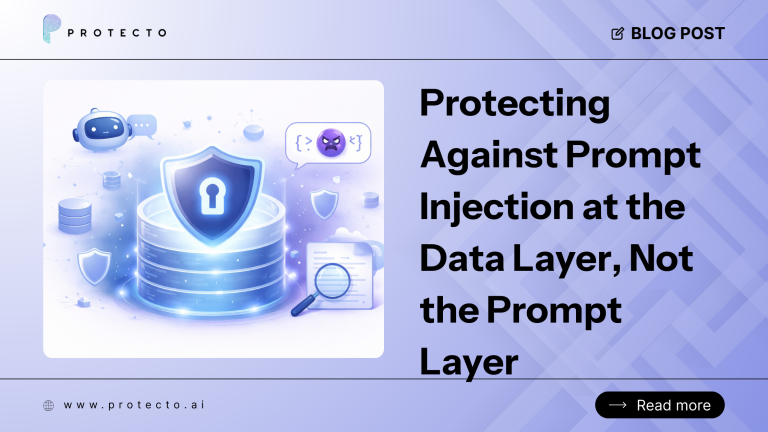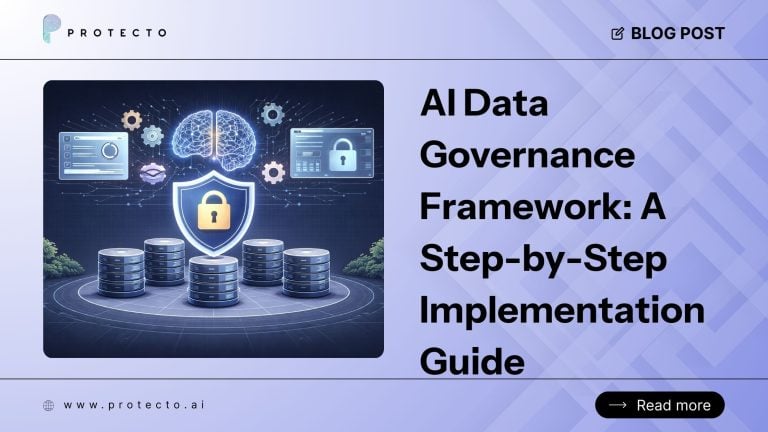In an era where data privacy regulations are becoming stricter, businesses must prioritize compliance and security. Whether you’re handling customer information, financial records, or employee data, using data privacy management software is essential to mitigate risks and ensure compliance with laws like GDPR, CCPA, and HIPAA.
However, choosing the best data privacy management software can be challenging. With numerous privacy management tools available, it’s crucial to identify the features that align with your organization’s needs. This guide explores the top 10 must-have features in a privacy management platform to help you make an informed decision.
1. Automated Data Discovery and Classification
One key feature of an effective data privacy management platform is its ability to automatically discover and classify sensitive data. With businesses generating massive amounts of structured and unstructured data, manual classification is impractical.
A robust privacy management tool should:
- Identify Personally Identifiable Information (PII), Protected Health Information (PHI), and financial data.
- Classify data based on sensitivity levels.
- Automate compliance checks by mapping data to relevant regulations like GDPR, HIPAA, and CCPA.
Interested Read: PII vs PHI vs PCI: What is The Difference
Why It Matters
Automated discovery minimizes human errors and helps businesses gain better visibility into their data, reducing the risk of non-compliance.
2. Compliance Management and Regulatory Mapping
Staying compliant with GDPR, CCPA, and other privacy regulations requires constant monitoring and reporting. GDPR compliance software should include built-in regulatory frameworks that:
- Continuously track changes in data protection laws.
- Offer compliance assessments and risk evaluations.
- Provide a centralized dashboard for managing compliance obligations.
Why It Matters
Regulations evolve, and non-compliance can result in hefty fines. Data privacy compliance software should keep businesses updated on legal requirements and automate compliance tracking.
3. Consent and Preference Management
Consumers are more aware of their data rights, making consent management a crucial feature of any privacy management platform. This feature enables businesses to:
- Track and manage user consent for data collection and processing.
- Provide granular preference settings for different types of data usage.
- Generate compliance reports for regulatory audits.
Why It Matters
GDPR and CCPA require organizations to collect and manage consent transparently. Failure to comply can result in legal penalties and loss of customer trust.
4. Automated Data Subject Rights (DSR) Management
GDPR privacy management software should support automated handling of Data Subject Requests (DSRs), including:
- Right to Access – Allow users to request their stored data.
- Right to Erasure (Right to be Forgotten) – Process deletion requests efficiently.
- Right to Data Portability – Enable users to retrieve their data in a standardized format.
Why It Matters
Manual DSR processing can be time-consuming and error-prone. Automating these requests improves efficiency and ensures timely compliance.
5. Data Masking and Anonymization
A data privacy management tool should provide advanced data masking and anonymization features to protect sensitive data while maintaining usability. The software should:
- Mask or encrypt sensitive data in databases and files.
- Support dynamic data masking for real-time data processing.
- Use tokenization or pseudonymization techniques to minimize exposure risks.
Interested Read: Pseudonymization vs Anonymization: Key Differences, Benefits, & Examples
Why It Matters
Data breaches can be costly. Implementing data masking reduces the impact of unauthorized access while preserving data utility for AI, analytics, and testing.
6. Vendor and Third-Party Risk Management
Businesses rely on third-party vendors for various operations, increasing exposure to data privacy risks. The best data privacy management software should include:
- Vendor assessment tools for evaluating third-party compliance.
- Data sharing agreements and risk mitigation frameworks.
- Automated monitoring of third-party security practices.
Why It Matters
A breach in a third-party system can compromise your data. Effective privacy management tools help assess and manage vendor-related risks.
7. Incident Response and Breach Management
Even with robust security measures, data breaches can occur. Data privacy management software should offer:
- Automated breach detection and alert mechanisms.
- Incident response workflows for quick action.
- Regulatory reporting tools to comply with GDPR’s 72-hour breach notification rule.
Why It Matters
Quick response to data breaches minimizes damage, prevents regulatory fines, and protects customer trust.
8. Data Retention and Deletion Policies
Regulations like GDPR and CCPA require businesses to delete data that is no longer necessary. A data privacy management platform should:
- Automate data retention policies based on legal and business needs.
- Provide scheduled data deletion to avoid unnecessary storage.
- Maintain audit logs for regulatory reviews.
Why It Matters
Excessive data storage increases risk and costs. Implementing data retention policies ensures compliance and minimizes storage expenses.
9. AI-Powered Risk Assessment and Analytics
AI-driven privacy management platforms provide real-time risk assessment and insights into data protection practices. Features to look for include:
- Predictive analytics for identifying privacy risks.
- Automated risk scoring for sensitive data.
- Custom dashboards for visualizing privacy metrics.
Why It Matters
AI-powered tools enhance decision-making by identifying risks before they become compliance violations.
Interested Read: AI and LLM Data Security: Strategies for Balancing Innovation and Data Protection
10. Seamless Integration with Existing Systems
A data privacy management software should integrate with:
- Cloud storage solutions (AWS, Azure, Google Cloud).
- CRM and ERP systems (Salesforce, SAP, Oracle).
- Security tools (SIEM, IAM platforms).
Why It Matters
Data privacy management software should not disrupt existing workflows but enhance security and compliance efforts.
Choosing the Right Data Privacy Management Software
With multiple privacy management tools available, selecting the right one requires evaluating:
✅ Compliance Capabilities – Does it support GDPR, CCPA, and other regulations?
✅ Automation & AI – Can it reduce manual efforts and improve efficiency?
✅ Scalability – Will it meet future privacy challenges as your business grows?
✅ Integration – Does it work seamlessly with your existing IT ecosystem?
Why Protecto Stands Out
Protecto is a leading data privacy management software that ensures compliance, protects sensitive data, and integrates seamlessly with enterprise environments. It offers context-aware data masking, automated compliance workflows, and AI-powered risk assessment, making it the ideal choice for businesses handling large-scale data privacy operations.
By leveraging the right privacy management platform, organizations can secure sensitive data, maintain compliance, and build customer trust in the evolving digital landscape.
Would you like a personalized demo of Protecto? Contact us today!




